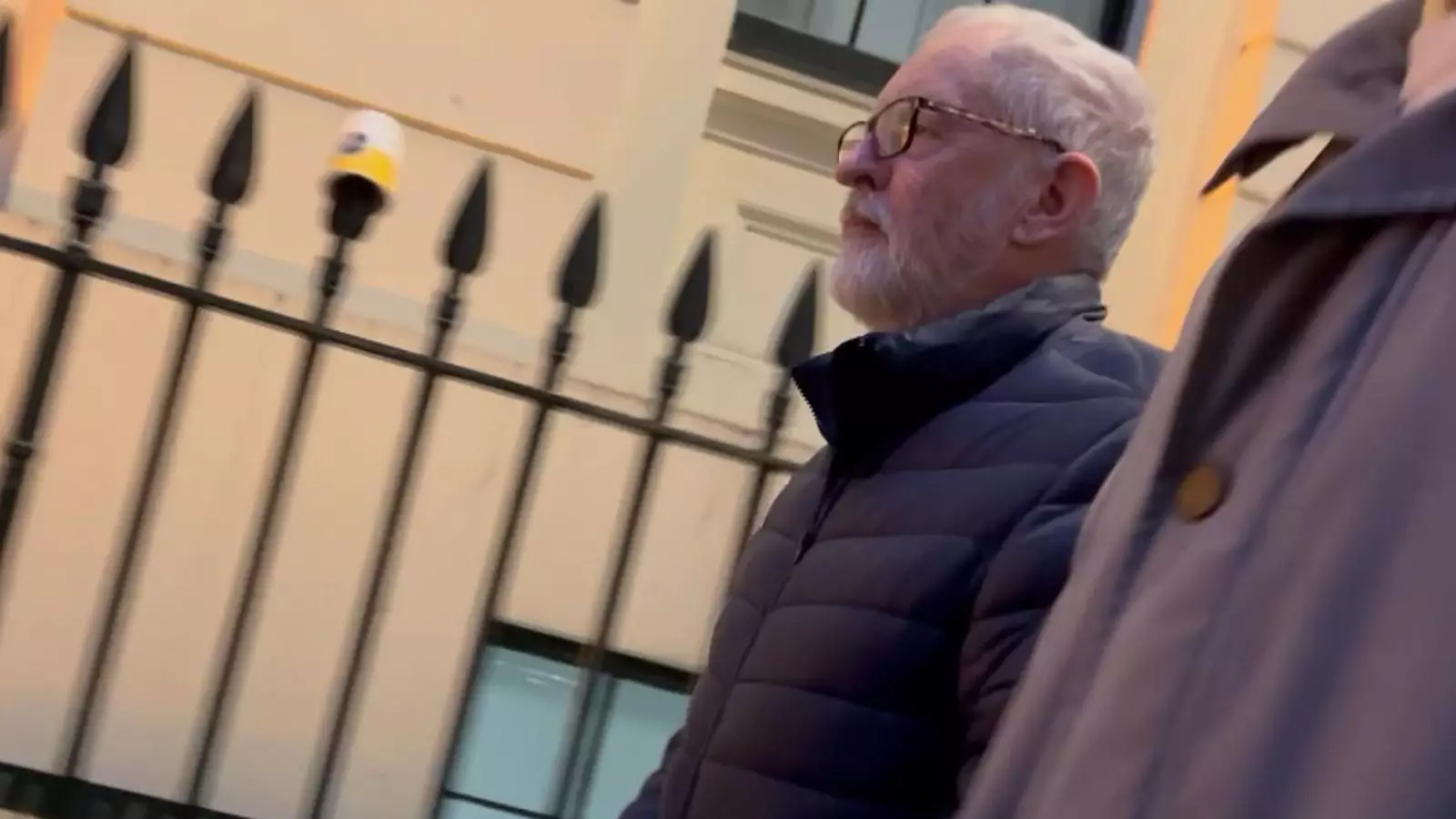The recent pro-Palestinian rally in London has rekindled political tensions and highlighted the complex relationship between governmental institutions and civil liberties in the UK. As former Labour leader Jeremy Corbyn voluntarily submits to police questioning, alongside key figures like John McDonnell, the event raises critical questions about freedom of expression, the political climate in Britain, and how protests are policed in an era of social upheaval.
On any given day, protests become focal points for civic engagement, allowing citizens to voice their opinions and push for change. However, the nature of these protests often encounters legal barriers. The Palestine Solidarity Campaign (PSC), which organized the recent protest, claimed that the police imposed conditions that undermined the demonstrators’ rights. The Metropolitan Police, on the other hand, argued that the PSC’s actions breached these conditions, resulting in public order offences for multiple individuals.
The breadth of public order laws in the UK is substantial, often leading to contentious interpretations. In this case, the police’s claims of a “deliberate effort” to violate protest conditions highlights ongoing discussions around how authority figures interact with demonstrators. When interpretations diverge significantly, as they have in this instance, public trust in law enforcement can erode.
Jeremy Corbyn’s decision to submit to police questioning symbolizes the persistent shadow that public discourse casts over political figures. Corbyn, who now serves as an independent MP after a controversial departure from Labour, has been an outspoken advocate for Palestinian rights. His involvement in the protest on the very day that Israel and Hamas agreed to a ceasefire indicates both his commitment to peace in the region and his readiness to stand against established narratives.
McDonnell’s participation further amplifies this message and suggests that the event was more than a mere protest; it reflected a concerted effort by former Labour leaders to challenge state narratives on contentious issues. Their collective insistence that they did not breach police lines—even disputing the police’s characterization of events—underscores the tension between officials and dissenters.
The pro-Palestinian rally’s timing is crucial, occurring amidst a fragile ceasefire in a long-standing and violent conflict between Israel and Hamas. Protests of this nature are often a reflection of broader socio-political sentiments, and in London, they serve as a platform for raising awareness about humanitarian issues. However, they also serve to expose underlying tensions within British society concerning anti-Semitism, islamophobia, and a perceived failure to adequately address these complex issues at a systemic level.
The PSC’s assertion that the Metropolitan Police’s narrative was misleading opens up broader debates surrounding how institutions communicate with the public. Accusations of heavy-handed tactics can diminish public faith in the police and can lead not only to further protests but also to challenges against police legitimacy.
The fallout from the protest and subsequent interviews with key political figures may have serious implications for future protests in London and beyond. The charges laid against individuals—including Corbyn’s brother—signal a potential chilling effect on peaceful demonstrations, causing citizens to reconsider their willingness to engage in public dissent.
As Corbyn and McDonnell navigate this fraught political landscape, they exemplify how modern politicians must intricately balance their advocacy with the realities of law enforcement and public sentiment. The ramifications of their actions will likely resonate beyond this particular event, potentially influencing future political discourse and protest strategy.
As the London protests unfold amid complex geopolitical narratives and domestic political pressures, it becomes clear that such events are never simply localized expressions of dissent. Instead, they are deeply interconnected with the broader tapestry of public policy and civil rights. The unfolding story continues to encompass issues of freedom of speech, the nature of democratic engagement, and the role that individuals—especially public figures—play in shaping the future of political discourse in the UK. The outcomes of these events will not only impact the involved parties but will also resonate throughout the political spectrum, shaping public perception in the months and years to come.


Leave a Reply